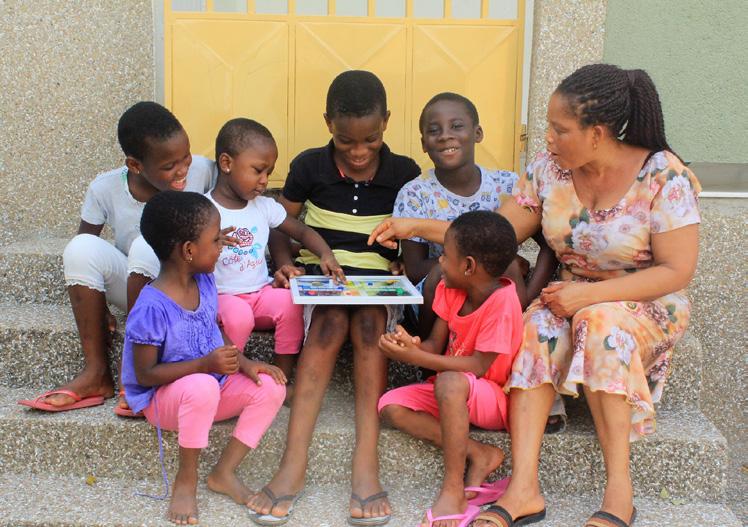3.1.3 SIMBA FAMILY CARE Every child has the right to grow up in a loving and safe environment. In the Netherlands too. Although we have an extensive infrastructure for youth support, so much more can still be achieved for children without a loving family or safe home. Reintegration with the family of origin after an out-of-home placement often does not happen, even though it is a widely supported basic principle. It is estimated that in 10 to 50% of cases children do not return to their parents after they have been taken into care. Furthermore, following an out-of-home placement, contact between family members: between siblings and between the children and parents often diminishes. In the Netherlands, in the case of an out-of-home placement, siblings are not placed together in an estimated 50%* of cases, while this (usually) would have been in the interests of the children. Our international experience in 30 European countries, among others, shows that it can be done differently. In all SOS programmes placing siblings together and making vulnerable families more resilient is an important fundamental principle. We aim to use this expertise in the Dutch context.
Methodology Focus on family reunification The methodology that forms the basis of Simba Family Care focuses on preventing families breaking up for good. Two major pillars in this regard involve intense support for parents in the form of family-strengthening and
The effects of Covid-19
Growing up together with your brother or sister is a right for every child.
all siblings being placed in care together in the event of out-of-home placement. Parents are provided with intense support devoting attention to the strength available in their
The Simba team mostly works from home.
to provide support, but it was also a question
counsellors paid visits to parents and children,
Contact with parents, children, the family
of seeking opportunities for effectively
such as to establish arrangements for contact.
house and foster parents, partners and youth
maintaining contact with families. Where
Lots of issues were managed online, such as
children to facilitate the return of the children to
care professionals was largely conducted
possible, and in accordance with the guide-
discussions with new partners and family
one or both parents.
online. This meant that family counsellors
lines of the National Institute for Public Health
houses. This generally worked well and we
spent less time travelling and had more time
and the Environment (RIVM), our family
were occasionally able to meet in person.
25 | SOS CHILDREN’S VILLAGES ANNUAL REPORT 2020
network, on which everything is aimed at repairing the relationship between parents and
* Source: report ‘Samen, tenzij’ (Together, unless) by the Netherlands Youth Institute






















